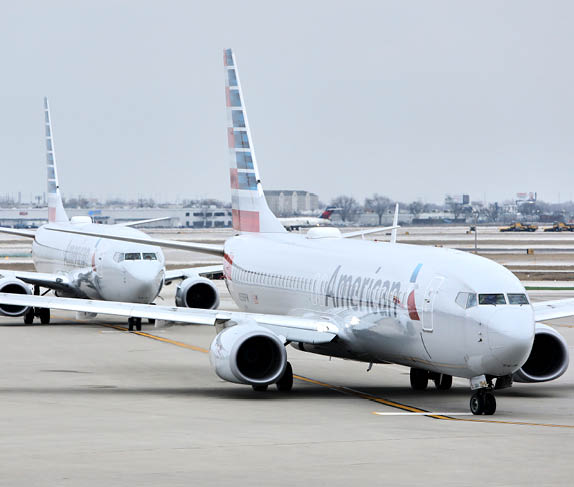Boeing and ELG Carbon Fibre have announced a partnership to recycle excess aerospace-grade composite material, which will be used by other companies to make products such as electronic accessories and automotive equipment.
The agreement – the first of its kind for the aerospace industry – covers excess carbon fibre from 11 Boeing airplane manufacturing sites and will reduce solid waste by more than one million pounds a year.
As the largest user of aerospace-grade composites from its commercial and defence programs, Boeing has been working for several years to create an economically viable carbon fibre reuse industry. The company improved its production methods to minimize excess and developed a model for collecting scrap material.
But technical barriers stood in the way of repurposing material that had already been "cured" or prepped for use in the airplane manufacturing process. UK-based ELG developed a proprietary method to recycle "cured" composites so they do not have to be thrown out.
"Recycling cured carbon fibre was not possible just a few years ago," said Tia Benson Tolle, Boeing Materials & Fabrication director for Product Strategy & Future Airplane Development. "We are excited to collaborate with ELG and leverage innovative recycling methods to work toward a vision where no composite scrap will be sent to landfills."
To prove that the recycling method can be applied on a grand scale, Boeing and ELG conducted a pilot project where they recycled excess material from Boeing's Composite Wing Center in Everett, Wash., where the massive wings for the 777X airplane are made.
ELG put the excess materials through treatment in a furnace, which vaporizes the resin that holds the carbon fibre layers together and leaves behind clean material. Over the course of 18 months, the companies saved 1.5 million pounds of carbon fibre, which was cleaned and sold to companies in the electronics and ground transportation industries.
"Security of supply is extremely important when considering using these materials in long-term automotive and electronic projects," said Frazer Barnes, managing director of ELG Carbon Fibre. "This agreement gives us the ability to provide that assurance, which gives our customers the confidence to use recycled materials."
Based on the success of the pilot project, Boeing says the new agreement should save a majority of the excess composite material from its 11 sites, which will support the company's goal to reduce solid waste going to landfills 20 percent by 2025.
"This collaboration takes Boeing's commitment to protect the environment to a whole new level. Recycling composites will eventually be as commonplace as recycling aluminium and titanium," said Kevin Bartelson, 777 Wing Operations leader.
Boeing and ELG are considering expanding the agreement to include excess material from three additional Boeing sites in Canada, China and Malaysia.
As a result of the partnership, ELG estimates the number of its employees will nearly triple from 39 in 2016 to an expected 112 by the end of 2019 as the recycling market continues to expand.

